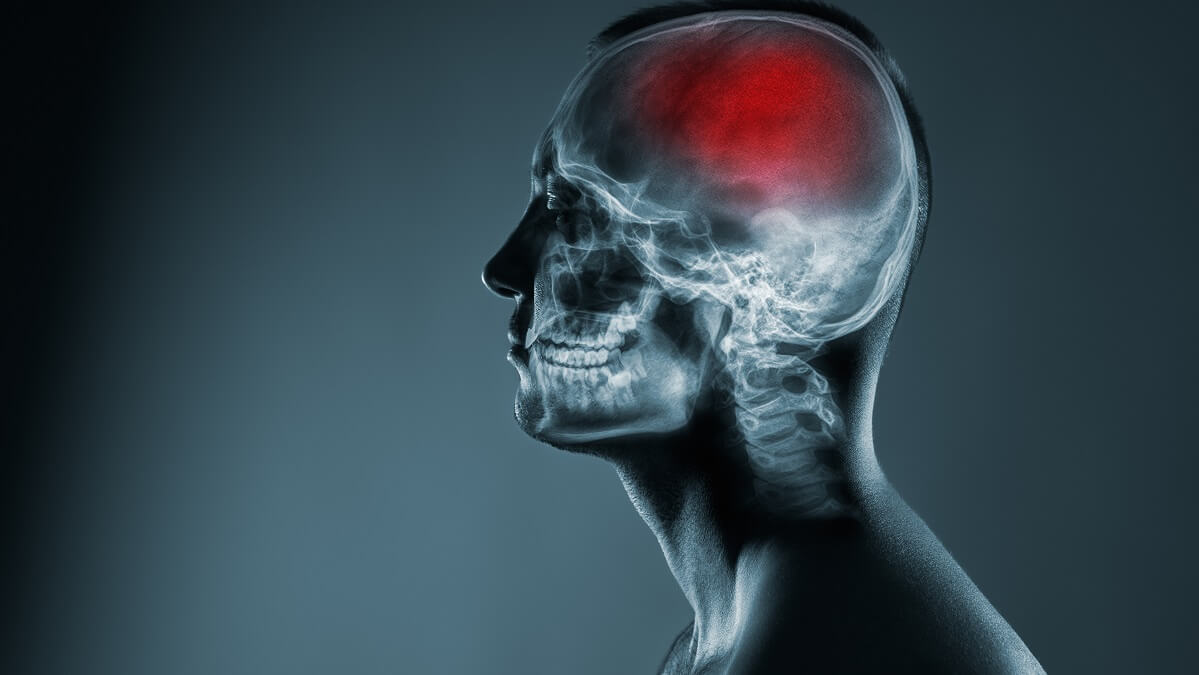Each year about 56,000 Australians have a stroke, according the Brain Foundation, which occurs when blood supply to parts of the brain is shut off, resulting in loss of brain cells. It is a leading cause of death – and also a major cause of disability for those who survive.
The impact can vary in severity but is often life-altering – both physically and mentally.
Their research found that 94 per cent of stroke survivors had experienced at least a mild impact on their psychological wellbeing, while 39 per cent said the impact was either severe or very severe.
The report also highlighted that 68 per cent did not believe they were receiving enough support once they left hospital.

John Watson, associate director for Scotland at the Stroke Association, said: “We owe it to everyone affected by stroke to ensure they get the right support to rebuild their life after stroke.”
So, what impact can stroke have emotionally and psychologically, and what can we do to help? We talked to a doctor.
Stroke can have ‘a profound effect’
According to the Stroke Association, some stroke survivors have described the psychological effects as being far worse than the physical effects.
“A stroke can have a profound impact on an individual’s mental health and overall wellbeing. Common psychological effects include feelings of depression, anxiety, fear, and even post-traumatic stress disorder (PTSD),” Dr Dave Nichols, resident NHS GP and medical adviser at MyHealthChecked, told the PA news agency.
“The sudden and often life-altering nature of a stroke can lead to emotional distress, lowered self-esteem and changes in a person’s mood and cognitive abilities. It can also impact an individual’s social life, whereby it may be more challenging to maintain relationships like they used to.”
What can be done to help?
The impact of this should not be underestimated, says Dr Nichols. “Several measures can be taken to help stroke survivors with their mental health and wellbeing. Firstly, timely identification and assessment of mental health issues are crucial.
“Healthcare professionals should offer emotional support, education and information to both the patient and their family. Rehabilitation programs that focus on physical, cognitive, and emotional recovery can also make a significant difference.”
How can the psychological support for stroke survivors improve?
Dr Nichols believes the psychological support for stroke survivors can be improved through various means. “One key approach is integrating mental health support into stroke care pathways. This ensures that emotional wellbeing is considered alongside physical recovery,” he said.
“Additionally, access to trained psychologists, psychiatrists and therapists can be enhanced, offering tailored interventions and therapy to address the unique needs of each individual. Family and friends can access dedicated resources from charities such as the Stroke Association, which are tailored for those supporting a loved one through stroke.”
One in four stroke survivors will experience anxiety within the first five years.
This could be caused by fear of a second stroke or financial uncertainties. Either way, anxiety can make you feel powerless and out of control.
To read more, visit: https://t.co/mApKVkBpFF pic.twitter.com/7ExqxrVGLb
— Stroke Association (@TheStrokeAssoc) October 11, 2023
Is there anything family and friends can do to help?
Family and friends play a crucial role in supporting people who have had a stroke. They can offer emotional support, encouragement and a sense of normalcy in the person’s life.
“Being patient and understanding about the challenges the [individual] may face is essential,” Dr Nichols adds. “Encouraging participation in rehabilitation and engaging in open communication can also be very helpful. In some cases, they may need to seek advice from healthcare professionals or support groups to better understand the survivor’s needs and challenges.”
Have you survived a stroke? Did any of these suggestions resonate with you? Why not share your experience in the comments section below?
Also read: Migraines may increase the risk of stroke and heart attack
– With PA

